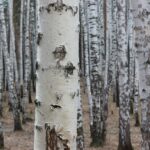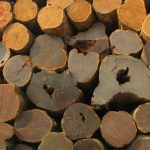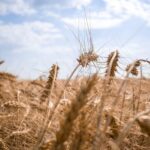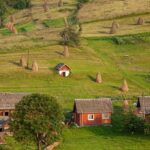
The National Forestry Agency of Georgia on Friday said its employees had uncovered 53 cases of illegal logging and timber transportation in various regions of the country in November, in total of up to 91 cubic metres of timber of various types detected.
The regional forestry service employees also identified one case of unauthorised possession of state forest funds.
The Agency has detected a total of 622 cases of illegal logging and timber transportation across the country from January to November, amounting to 1,197 cubic metres.
Prime Minister Irakli Kobakhidze revealed on Thursday that the Ministry of Environmental Protection and Agriculture had prepared a draft law tightening responsibility to address concerns regarding “facilities for illicit forest use”.
The TV loop aims to identify and take action against instances of false claims or other violations of FSC requirements.
The scope of this Eurasia birch wood panels TV loop is:
- Geographic areas: China and central and eastern European countries (Bosnia and Herzegovina, Bulgaria, Croatia, Czech Republic, Estonia, Georgia, Greece, Hungary, Latvia, Lithuania, Moldova, Poland, Romania, Serbia, Slovakia, Slovenia, and Ukraine).
- Product type: Plywood
- Species: Birch (Betula)
According to the Environmental Supervision Department, 204 cases of illegal logging were recorded in July 2023, and 210 cases were recorded in April 20232. The eastern region of Kakheti had the highest number of cases, followed by Samtskhe-Javakheti and Adjara.
The Georgian National Forestry Agency on Monday said 1,105 cases of illegal logging and timber transportation were registered in Georgia in 2023.
Georgia’s State Sub-Agency Department of Environmental Supervision on Monday said nine illegal sawmills had been identified last month in the western Georgian regions of Imereti and Samegrelo. Inspectors also found a “large amount” of illegally cut timber in the illegal sawmills. With all nine cases containing signs of criminal offences, the Department has forwarded the materials to “relevant agencies for further response”.
As part of the amendments to the Law of Georgia on State Property, wood plants illegally obtained within the boundaries of state forests will be transferred to forest management bodies, with Deputy Agriculture Minister Nino Tandilashvili explaining the change would enable the latter to use the removed timber to meet a part of “social needs for timber resources” and reduce the scale of logging.
The Parliament of Georgia on Thursday discussed and approved amendments aimed to reduce illegal logging, increase quality and competitiveness of Georgian wine, and combine the system of geographical indications for domestic products with the corresponding European Union structure.
As part of the amendments to the Law of Georgia on State Property, wood plants illegally obtained within the boundaries of state forests will be transferred to forest management bodies, with Deputy Agriculture Minister Nino Tandilashvili explaining the change would enable the latter to use the removed timber to meet a part of “social needs for timber resources” and reduce the scale of logging.
The new equipment is particularly important for the detection of offenses such as illegal logging, poaching and air pollution.
The Environmental Supervision Department of Georgia on Monday announced incoming restrictions on extraction of boxwood trees.
Making the public service announcement ahead of the Palm Sunday religious holidays, in which boxwood plays a symbolic part for parishioners, the Department said its crews would place areas where illegal extraction and sale of the trees had been high in recent years under “particular monitoring”.
The Colchian boxwood tree is an endangered species on the Red List of Threatened Species of the International Union for Conservation of Nature – a system for classifying species at high risk of global extinction.
Georgian authorities have identified 204 cases of illegal logging, timber transportation and violation of technical regulations at illegal sawmills across the country throughout July, the Environmental Supervision Department announced on Thursday.
Between July 1-31, up to 600 cubic metres of illegally harvested timber were seized by the state agency, with a majority of 36 cases, out of 151, being identified in the eastern region of Kakheti.
Click here to access the Global Illegal Logging and Associated Trade (ILAT) Risk assessment tool and to download the Forest Trends User Guide describing the functionality of the ILAT Risk Data Tool.
Click here to access the Cattle Data Tool.













